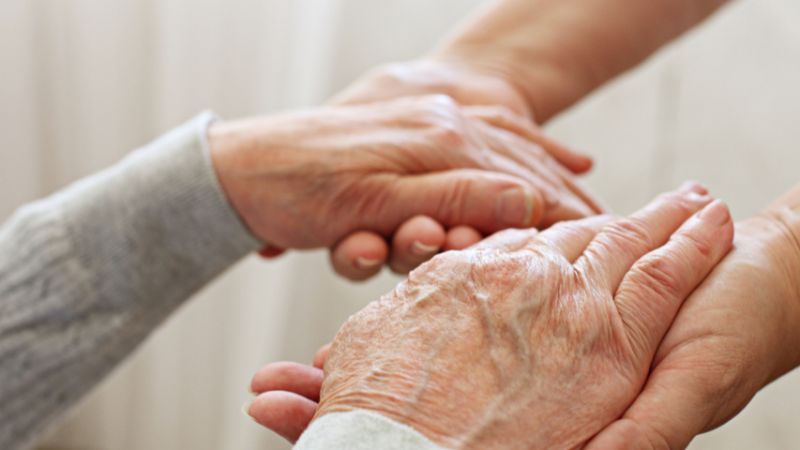Caregiver burnout is a reality for many people this time of year, which makes incorporating self-care for caregivers into your routine that much more important.
A combination of guilt, time management, and family obligations are all valid reasons to prevent caregivers from taking more time for themselves, however, doing so only puts caregivers at greater risk of falling ill, or suffering from physical and emotional exhaustion. Self-care for caregivers is a crucial component to caregiving — just as flight attendants will remind you that you must put on your own oxygen mask before you can help others put on theirs.
Avoid Caregiver Burnout: How to Practice More Self-Care
Burnout is not just something people say when they are really busy; caregiver burnout is an actual medical condition that takes a toll on physical, mental, and emotional health. Here are a few ways caregivers can help keep burnout at bay throughout the year:
Put “Me-Time” On The Calendar
Treat the concept of self-care for caregivers the way you would any other important appointment or event: make yourself a priority, put it on the calendar, and commit to more “me-time”. Whether you need to schedule a night for your spouse to take care of dinner so that you can take a bath, arrange for someone to pick up your children after school so that you can go to the gym, or to simply schedule time for yourself to read a book over a glass of wine without anyone needing anything from you — it can’t happen if you don’t request it. Use a shared calendar (either online or offline) with your family so that everyone can stay on the same page when you schedule your breaks. Taking the necessary time to recharge — time that everyone knows belongs to you because you have planned in advance — will successfully help you avoid caregiver burnout.
Enlist a Workout Buddy
Regular exercise, especially aerobic fitness activities that get the blood pumping, are an essential component to remaining healthy — both in body and mind. In addition to keeping your heart healthy, exercise can also help to reduce stress, which is vital in combating caregiver burnout. And if you’re trying to truly commit to regular exercise, a study found that 95 percent of participants who began an exercise program with friends successfully completed it. Aside from the benefits of extra motivation, working out with a good friend can also serve double duty of allowing you time to talk about your caregiving experience — relieving you of some of the mental burden that comes along with your caregiving duties.
Consider Respite Care
Respite care is an excellent form of help for caregivers as it provides a temporary and professional solution to the problem of time. As a caregiver, there is never enough time and sometimes you need a break — whether for a business trip, a personal vacation, or just to recharge your batteries. There are many professional organizations that provide respite care services, including in-home care agencies that send caregivers to your loved one’s home in your absence. And if respite care doesn’t seem like a viable option, you can also consider investing in a medical alert device for your loved one. A medical alert device provides your aging parent with a safety net should an emergency occur when they are alone. It might not seem like much, but it’s a big step in the right direction when it comes to preventing caregiver burnout.
Get Enough Sleep At Night
The benefit of a good night’s sleep cannot be overstated, especially when it comes to self-care for caregivers. An article in Health Magazine states that enjoying between 7-9 hours of sleep each night can lead to lower levels of stress and depression, improve memory and attention, and even boost your longevity. On the contrary, when you are sleep deprived, you can put your health at risk, specifically for diabetes, heart disease, obesity, and sleep apnea — adding to your overall stress levels. Basically, a lack of sleep puts you on the fast-track to caregiver burnout. Choosing to get more sleep might not seem like making time for yourself, but it really is!
Commit To Eating Good Food
The old adage, “you are what you eat,” certainly rings true when it comes to self-care for caregivers. Foods that are high in fat and sugar content — which are what you are most likely to reach for when you are in a time crunch — have been proven to slow you down, both physically and mentally. As a caregiver, one of the ways that you can build in more me-time is by committing to cook healthier food for yourself each week. Although it does seem easier to grab some fast food on the go, or load up on carbs when you’re in a rush, in the long run it can do more to damage your health than you think. Taking the time to prepare fresh food that includes vegetables and fruit at every meal will not only help to ward off caregiver burnout — it will also help provide you with an extra boost of energy during busy days.
Take The Breaks You Need
Don’t wait until the signs of caregiver burnout start to present themselves to focus on self-care. Be proactive about your own health needs, just as you are likely to encourage the loved one you care for to do. Giving your mind and body all that it needs to not just survive but to instead thrive, will make you a more effective caregiver, parent, partner, and friend.

